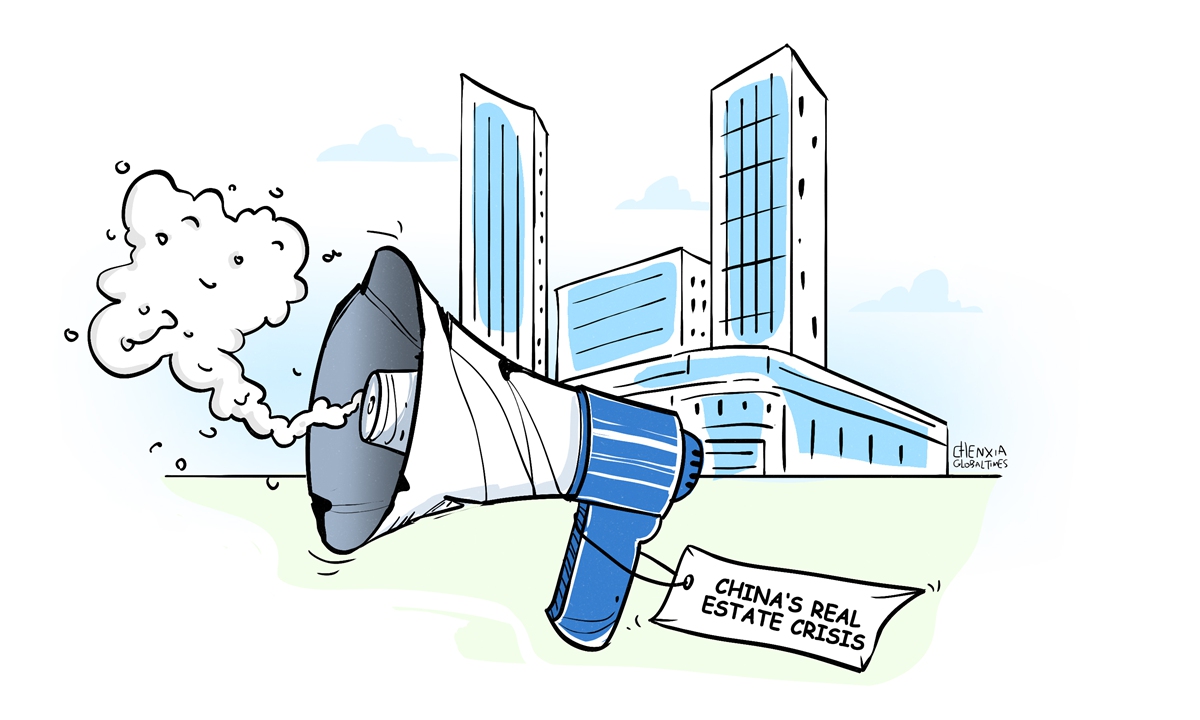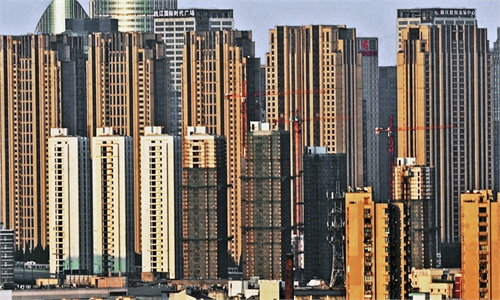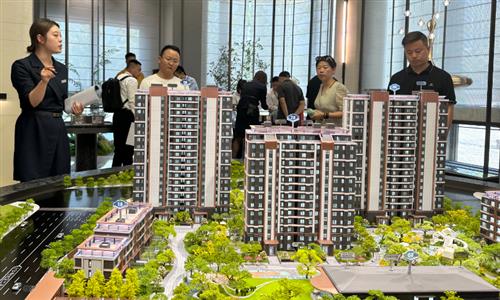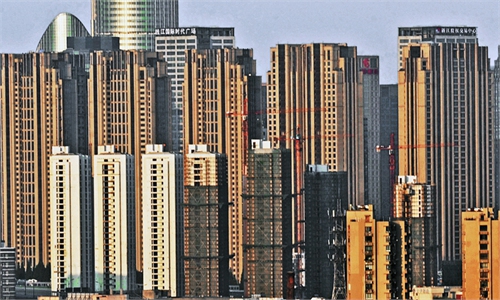
Illustration: Chen Xia/GT
China's real estate sector has been making headlines in the West due to a series of loosening measures rolled out by the government to support the property market. However, some commentators who are unaware of the actual situation in China have smeared the Chinese economy, exaggerated the challenges it faces, and claimed that "China's housing rescue is too small to end the crisis." These groundless allegations should be condemned.On Friday, China announced a multi-pronged approach concerning every aspect of the real estate market, ranging from cutting housing loan interest rates to reducing housing inventories.
Through its unique economic practices, China has developed original and innovative theories during its unprecedented economic experiment. These extensive measures will not only strengthen the country's real estate industry, but also have a profound and lasting impact.
China's continuously strengthening policy measures are acting as a source of confidence, which will help stabilize and revive the real estate industry, even though the sector still faces challenges and risks.
Housing prices in China fell in the first four months of the year. Relaxing down payments and cutting housing loan interest rates do not necessarily mean housing prices will rebound, but the loosening of property policies reflects the government's determination to stabilize the market. In doing so, China can avoid systemic risks.
Price fluctuations are normal market movements. What needs to be done is sticking to the bottom line of no systemic financial risks in the process of industry transformation and upgrading.
China announced a slate of fresh measures on Friday to reinvigorate the property industry. For instance, the minimum down payment ratios for individuals' commercial housing mortgages are lowered to no less than 15 percent for first-home purchases and 25 percent for second-home purchases. It is believed that with the strong support of such targeted measures, fluctuations in home prices will be kept within a controllable range.
China's recent policy measures will help hedge risks and ease fluctuations in the market. More importantly, they may serve as a proactive approach to push forward reform in the real estate sector to support long-term high-quality development and further enhance social equity.
The real estate sector concerns ordinary people's interests and the overall situation of China's economic and social development. China's central bank announced on Friday that it would establish a 300 billion yuan ($42.25 billion) relending facility to encourage local state-owned enterprises to use the funds to buy reasonably priced commercial homes that have completed construction.
The purchase of housing inventories can not only inject liquidity into developers, but also help convert excess inventories into affordable social housing to promote economic and social development, social equity and justice. It represents a major policy innovation in the real estate sector, combining the prevention and resolution of economic risks with efforts to nurture a more equitable society.
As China marches toward becoming a great modern socialist country, policymakers have stressed that economic reforms should focus on both finding new growth engines and protecting social fairness and justice. This emphasis is reflected in the ongoing reform in China's real estate sector.
By making noise about and hyping a collapse of China's real estate industry, some Western forces want to disrupt China's development. However, this will be futile in the end, because they lack understanding of the logic behind China's ongoing economic reforms.
China has various tools it can use to bolster the property market. In the meantime, the country is expected to continue developing new and innovative approaches to pursue high-quality development in the real estate sector. Stimulus policies will be developed to meet multiple objectives rather than focusing only on pushing up housing prices. This is also a strong signal that China still has enough policy leeway to adjust its economic structure and the real estate sector.
The author is a reporter with the Global Times. bizopinion@globaltimes.com.cn



